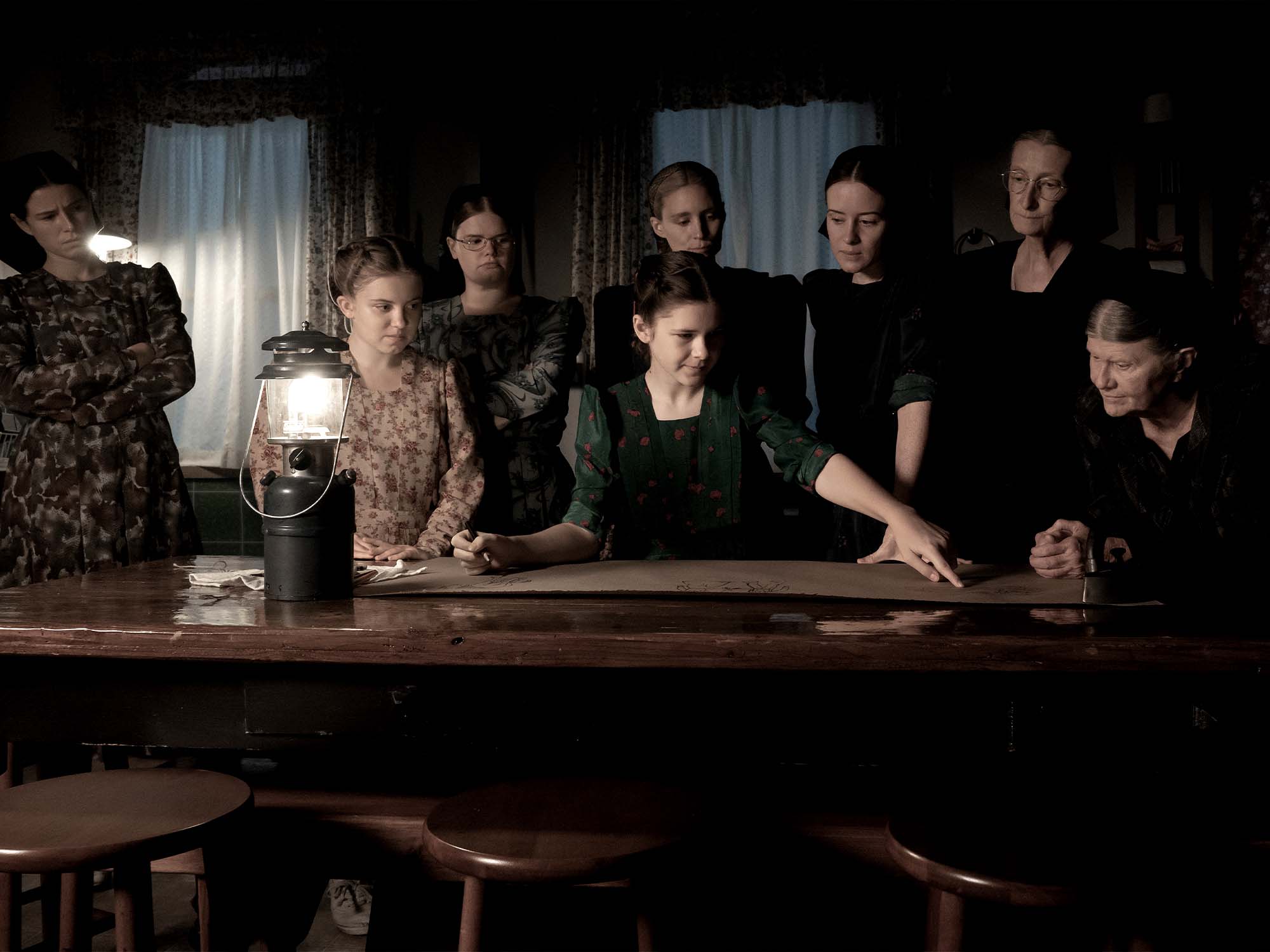
Women Talking
Sarah Polley has a message for you. It comes from the 2018 novel ‘Women Talking’ by Miriam Toews, although Polley has reformulated that dialogue from text to film. The plot is simple – eight Mennonite women have gathered to decide whether the women of their colony should remain with, fight, or leave the men who have repeatedly drugged and raped them. The message, however, is rich, complex, and multifaceted in its depiction of what discourse held exclusively among women looks like. That is, a discourse wholly different to that held between women in any film written and directed by men.
In her 1975 essay ‘Visual Pleasure and Narrative Cinema’, theorist Laura Mulvey concluded that the only way to break down the male gaze in cinema “is to free the look of the camera into its materiality in time and space and the look of the audience into dialectics, passionate detachment”. In doing so, we lose the conventional pleasures which mainstream, male-directed films give us, but we regain a sense of sexual equity.
When filmmakers foreground dialectics and create that sense of detachment, they generally move out of the mainstream into the avant-garde. What Polley does so remarkably in Women Talking is to achieve Mulvey’s criteria for a successful feminist cinema within the Hollywood model.

Women Talking begins with on-screen text: “What follows is an act of female imagination.” It aligns itself with a tradition of theatrical experimentation in film, an iconoclastic deconstruction of how cinema has conventionally been used to merely tell stories. The films of French duo Jean-Marie Straub and Danièle Huillet come to mind, whose use of vocalised text and static imagery allowed them to create radical communist films. What Polley subverts from this experimental mode is to cast some of Western cinema’s biggest stars in roles which, in a micro-budget film, are typically played by non-professional actors. Enter Frances McDormand, Rooney Mara, Claire Foy, Jessie Buckley…
The presence of these actors automatically gives us a way into the film through an inviting sense of familiarity. It is the same form of invitation extended by theatre, to come into the dark and sit among friends who speak to you on what at least feels like an equal plane.
Mara, Foy, and Buckley especially shine among the cast, each given the most trenchant lines which their intoxicating onscreen prowess drives home. There are missteps, of course – a subplot about a trans*-coded character especially – but that is the nature of experiment. It must feel rough and raw so as not to create the impression of conclusion. As the film’s ending powerfully indicates, Women Talking must not be the final word. Our discourse must only carry on.
Little White Lies is committed to championing great movies and the talented people who make them.
By becoming a member you can support our independent journalism and receive exclusive essays, prints, monthly film recommendations and more.
<p>Published 9 Feb 2023































![iFi's GO Bar Kensei Dongle DAC Supports K2HD Technology With Some Samurai Swagger [Updated] iFi's GO Bar Kensei Dongle DAC Supports K2HD Technology With Some Samurai Swagger [Updated]](https://i0.wp.com/cdn.ecoustics.com/db0/wblob/17BA35E873D594/33FF/45A11/QTXOLJR4xDKSNMMk2WlTgjaIlvSgcYpeU1xJzUwIoYs/ifi-go-bar-kensei.jpg?w=768&ssl=1)
























